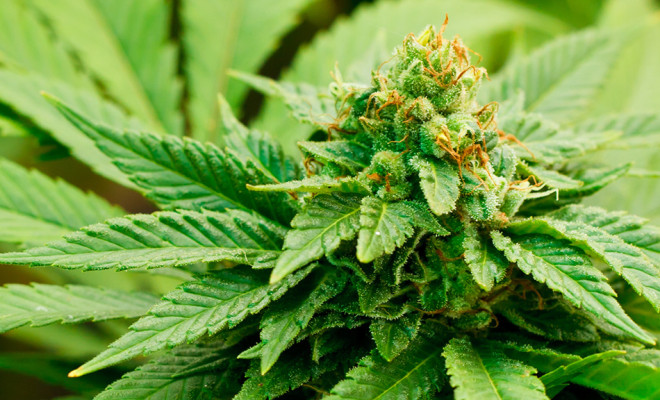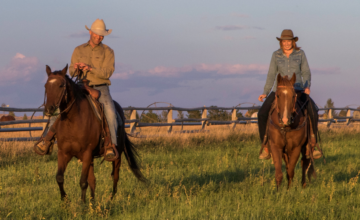The Push For Legalization of Marijuana in Wyoming
The statute is backed by the Wyoming chapter of NORML, the National Organization for the Reform of Marijuana Laws, after a previous initiative, which had been opposed by the Wyoming Association of Sheriffs and Chiefs of Police, failed to find enough favor because it contained support for recreational use in its content. A statewide poll found that while 72 percent of Wyoming’s residents are in favor of legalized medical marijuana, only 35 percent support personal, recreational use.
NORML needs to collect more than 25,672 signatures, representing 15 percent of the state’s 2014-registered voters in at least two-thirds of its counties, by February 8 to get the initiative on the ballot. “We have people traveling those roads. We’ve got a little Pony Express going on here — the NORML Express. Most of these people have been connected to us online for a long, long time,” said the director of the Wyoming NORML chapter, Chris Christian.
Wyoming has some of the most limiting ballot initiative requirements in the United States. The last time a voter-supported initiative made it to the ballot was in 1996 when more than 100,000 voters approved and less than 90,000 opposed a measure related to congressional term limits. Despite the plurality in favor of approval in that case, the initiative still failed because too many people didn’t cast a vote either way. It needed at least 215,844 votes to pass.
The last successful voter initiative was in 1991, which tightened railway safety laws.
“In Wyoming, it’s a complicated process. It’s hard for a grassroots effort, really, to get an initiative on the ballot,” conceded Wyoming’s Elections Director, Peggy Nighswonger.
The governor of Wyoming, Matt Mead, is well known for his opposition to marijuana legalization, pointing to trafficking of pot, among other drugs, from states where it’s legal. “Once you can do that with marijuana, you can also do it with methamphetamine. You can do it with heroin. We are impacted — even if the law doesn’t change one bit,” he said.
Mead has formed a task force to study legal marijuana and its effects, the Marijuana Impact Assessment Council. The governor is a former U.S. attorney in Wyoming, and none of the 20 task force members, including the state’s attorney general, Peter Michael, have a pro-marijuana activist record.
“High usage over a very long period of time — there are some very good studies about how IQ could be affected,” said task force member Steve Butler, from the Survey and Analysis Center at the University of Wyoming.
Governor Mead said the task force will examine tax revenues collected versus substance abuse treatment expenditures in other states where pot has been legalized, such as Colorado. The task force’s final report on the subject is due in January and should include a section featuring the positive health benefits of marijuana as well as the drawbacks.
Marijuana voter initiatives have a long history in the U.S., with the first attempt at legalization getting on the ballot in California in 1972 — it failed. Subsequent initiatives in Nevada, Alaska and in California again in the years 2002, 2004, 2006 and 2010 also failed, but marijuana advocates finally tasted success in Washington state in 2012 with Initiative 502, which made recreational marijuana use legal there.
Following the success in Washington, Colorado, Washington D.C., Oregon and Alaska have all seen their own respective initiatives pass state ballots and allow for legalized pot for either recreational or medical use or both. Furthermore, medical marijuana has been legalized in Arizona, California, Georgia, Oregon, Maine, Massachusetts, Michigan, Minnesota, Montana, Nevada, New Jersey, New Mexico, New York, Texas and Vermont.
Currently, both Ohio and Nevada have a recreational state amendment and voter initiative, respectively, scheduled for balloting in 2015 and 2016, with further initiatives and/or state amendments planned for Arizona, Arkansas, California, Florida, Georgia, Idaho, Maine, Massachusetts, Michigan, Mississippi, Missouri, Montana, Nebraska, New Mexico and South Dakota for 2016.
Legalization supporters note the amendment in Ohio faces the highest odds of not passing, which would be a setback for the national legalization movement. Currently, Alaska, California, Delaware, Maine, Maryland, Mississippi, Nebraska, New York, North Carolina, Ohio and Oregon have decriminalized marijuana, with at least four other states — among them Connecticut, Rhode Island, Hawaii and New Hampshire — contemplating doing the same and/or fully legalizing it by 2016.
For its part, the federal government prohibited the DEA from arresting medical marijuana users in states with medical marijuana laws in 2014. It also ended the federal ban on medical marijuana. Some supporters say the best prospects for state legalization come when ballots are held at the same time as presidential elections — youth turnout is higher, and prospects for passage are better.
Overall, national surveys put support for pot legalization at 52 percent. While support varies from state to state, there are often differences of opinion when it comes to commercialization and production. There are also differences regarding where marijuana should be consumed — some people believe it should be allowed in public places, possibly in front of children, while others would like to see its use confined to private spaces and residences.
States have seen high tax income numbers from early adopters such as Ohio and are upbeat about the prospects for additional revenue. But as in Wyoming, there are lingering concerns about youth consumption and the substance’s impact on health. In the end, as with many political battles, this one may come down to money; for now, it seems that the opponents of many pending initiatives and amendments are not willing to outspend supporters, the most outspoken of whom are often those who stand to profit from legalization.





Sandra T. Arguellowells
February 3, 2016 at 3:15 am
I was born and raised in Douglas Wyoming. I am 71 yrs old woman who served her country and retired from military. My opinion as far as medical marijuana is very good for older and people with pain. I have used the lotion that has marijuana in it and it has help me tremendously. I had knee pain and alot of times it was hard for me to walk, so I went to the marijuana store and purchased the extra strength lotion and applied it to both knees and within one week I had no knee problems and could life my knee to my chest. I believe in what it can do medically if you have pain in your joints. I am not a smoker and use it for medical reasons.
Rachelle
June 29, 2016 at 4:02 am
I do not even know how I finished up right
here, however I believed this put up was good.
I do not realize who you are but definitely you are going to
a well-known blogger in the event you aren’t already. Cheers!